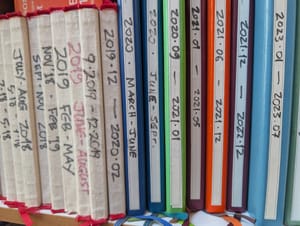This essay is forthcoming as a broadsheet from Cross+Roads Press, and is based on an interview published on Basho’s Road in December, 2009.
For me, poetry is language under compression. And there’s no more compressed form than the very short poem. Skillfully done, a tiny poem can speak volumes — it can pack a massive emotional and sensory load.
To avoid melodrama and sentimentalism, it’s important for the emotional impact to be indirectly expressed, through metaphor and suggestion. There are exceptions, of course. But I’m most attracted to poems that are referential, concrete, objective and sensory — though with an underlying layer of larger intellectual, emotional, or metaphorical significance. Haiku, with so many rules to choose from, is really well suited to making all that happen in a small space.
You can see what I’m talking about in the work of Basho, Buson and Issa as well as modernists like Pound and Williams. A. R. Ammons explored the very short poem to great effect, and Richard Wright’s haiku show a deep understanding of formal haiku. More recently, poets like Joseph Massey have really pushed the boundaries of how much freight a few words can be made to carry.
There are lots of great examples in the archive of haiku published by tinywords from 2000 to 2008 and in tinywords’ newer archive of haiku and micropoems published since 2009.
* * *
I’ve never been that interested in the debates about what qualifies as haiku; I’m looking for good, striking poetry, whatever it’s called.
There is lots of interesting work in this vein going on through other forms than haiku, such as one-line poems (monostiches), tanka, micropoems, flash poetry, etc. Twitter has been a big part of this efflorescence, because it’s a built-in platform for publishing and sharing very, very small snippets of text.
Also, I want to sidestep all the debates and questions about what is really a haiku and what’s not. I find haiku’s long and rich history, and its many rules, are a great source of inspiration, and all that is very helpful in crafting good poems. But arguments about what constitutes a haiku are not especially interesting. The form is a means to the end, which is creating great poetry.
* * *
Basho’s great contribution was the attempt to make haiku a direct expression of a particular moment, of the thing in itself. The manifestation of a phenomenon should appear as vividly in the haiku as it does in real life. At least, it should seem to do so, without the overt imposition of the author’s ego or perspective.
Basho’s style evolved out of his close contact with Zen Buddhism. Granted, unless you’ve been sitting meditation for years, a poem is not likely to be the key to enlightenment! But I’m unapologetic about the poem’s attempt to convey reality. It’s not a very fashionable position for contemporary poetry, but I stand by it.
Like Jack Spicer, if I could put a real lemon into a poem, I would. “Words are what sticks to the real. We use them to push the real, to drag the real into the poem,” Spicer said. I think Basho would have agreed with that.
* * *
The idea for tinywords came to me in mid-2000, shortly after I got a cellphone that was capable of receiving text messages. I didn’t know many people who were into texting so I started looking around to see what I could do with the service. It turned out I could get weather updates, sports scores, news headlines — none of which seemed particularly interesting to me.
Then I thought: what about poetry? Haiku are short enough that they ought to be able to fit into the 160-character limit of an SMS message, and wouldn’t it be nice if you could get a haiku on your phone every day? Of course no one was doing this, so I decided to start.
It just seemed like a good way to humanize technology, and to send people a little moment of poetry at a random point in the day — something that would remind them, gently, to wake up and pay attention. Or maybe just bring a smile or a thoughtful, puzzled frown to their faces!
Since then, I’ve been amazed by the diversity and sheer number of people who read and subscribe to tinywords: People on every continent and in all walks of life. While most of the readers are based in the U.S., there are strong contingents of readers and contributors in England, Poland, India, Australia, and New Zealand.
* * *
The readers have taught me how valuable and accessible poetry can be, even when it’s difficult or adventurous. People respond so enthusiastically to tinywords — they tell me that they love receiving the poems, and that they missed them when we weren’t publishing them, that they’re a bright spot in their days. People share them with their friends. One group of students even read each day’s poem aloud in their school cafeteria.
That’s the other genius of the very short poem: Because it is so small, is it unintimidating. It is not hard to learn how to read or write haiku. Writing very good haiku is an achievable goal for many people. And they’re easy and fun to share with others.
And then there is the simple fact that short poems don’t take a lot of time. Even in the busy-ness and swirl of modern life, reading or writing very short poems can be part of a daily practice. And that, I think, is the key to enjoying any art, and much more so to mastering it.
As Waverley Root said of wine, “Drink it every day, at lunch and at dinner, and the rest will take care of itself.” You could say the same about reading and writing poetry.


